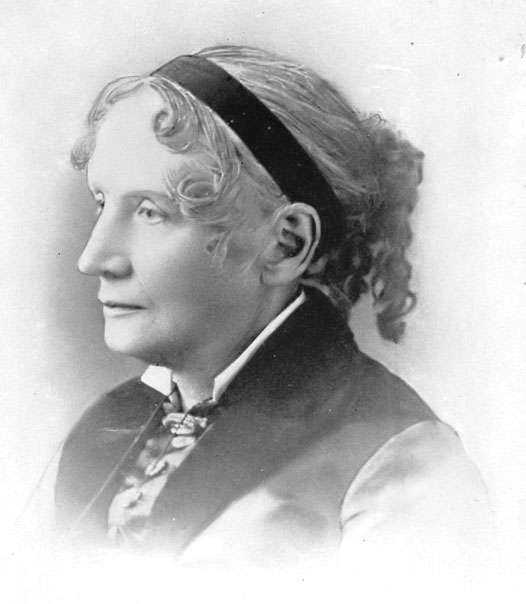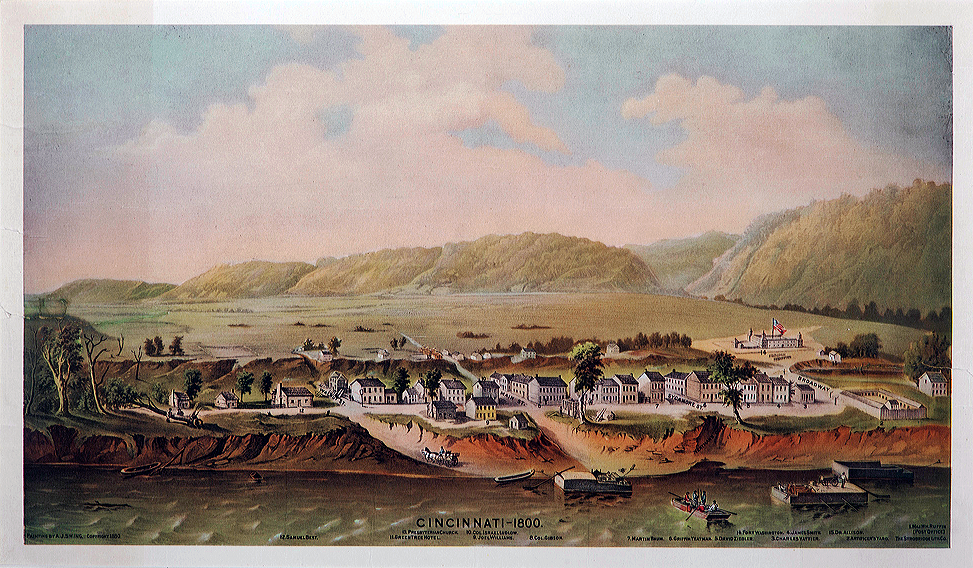|
College Of Teachers (Cincinnati)
The College of Teachers, a Western enlightenment group, was formed in 1830 by a group of teachers and other citizens of Cincinnati, Ohio. Alexander Hamilton McGuffey and Calvin Ellis Stowe were key members of the group. It evolved from two earlier groups, "Western Literary Institute and College of Professional Teachers" and "Western Literary Institute and Board of Education". It embraced development of common schools and the movement led to the creation of the McGuffey Readers. See also * American Enlightenment The American Enlightenment was a period of intellectual ferment in the thirteen American colonies in the 18th to 19th century, which led to the American Revolution, and the creation of the United States of America. The American Enlightenment was ... References History of Cincinnati 1830 establishments Educational organizations Literary societies {{Lit-org-stub ... [...More Info...] [...Related Items...] OR: [Wikipedia] [Google] [Baidu] |
Alexander Hamilton McGuffey
Alexander Hamilton McGuffey, also known as Alexander H. McGuffey, (August 13, 1816 – June 3, 1896) was an editor of the fifth and sixth of the series of ''McGuffey Readers''. His brother William Holmes McGuffey edited the first four readers in the series. Alexander McGuffey began his career as an educator, before becoming a lawyer. He was secretary and treasurer of the Trustees of Cincinnati College, responsible for pulling the institution out of debt after poor financial practices and two significant fires. Early life and education Alexander Hamilton McGuffy was born in Trumbull County, Ohio on August 13, 1816. His parents were intellectual, refined Scottish people. When he was nine or ten years old, he was placed under the care of his twenty-six year old brother William Holmes McGuffey. He lived at his brother's house in Oxford, Ohio, where he studied Hebrew. At the age of sixteen, he graduated from Miami University, attending the school from 1826 to 1831. Career He taught S ... [...More Info...] [...Related Items...] OR: [Wikipedia] [Google] [Baidu] |
Calvin Ellis Stowe
Calvin Ellis Stowe (April 6, 1802 – August 22, 1886) was an American Biblical scholar who helped spread public education in the United States. Over his career, he was a professor of languages and Biblical and sacred literature at Andover Theological Seminary, Dartmouth College, Lane Theological Seminary, and Bowdoin College. He was the husband and literary agent of Harriet Beecher Stowe, author of the best-seller ''Uncle Tom's Cabin''. Early life and education Stowe was born in South Natick, Massachusetts. His father, a village baker, died due to an accident in 1808. He left an impoverished widow with two sons. Stowe was sent to his maternal grandparents to live. At the age of twelve, Stowe was apprenticed to a paper maker. Stowe had an insatiable craving for books, and acquired the rudiments of Latin by studying at odd moments during his apprenticeship in the paper mill. He saved enough money to pay for a year at Bradford Academy in 1818. His earnest desire and determine ... [...More Info...] [...Related Items...] OR: [Wikipedia] [Google] [Baidu] |
Common School
A common school was a public school in the United States during the 19th century. Horace Mann (1796–1859) was a strong advocate for public education and the common school. In 1837, the state of Massachusetts appointed Mann as the first secretary of the State Board of Education where he began a revival of common school education, the effects of which extended throughout America during the 19th century. Early development Common schools originated in New England as community-funded instruments of education for all children of the region or neighborhood. These secondary schools furthered the Puritan conformity of the region by institutionalizing religion into the curriculum for the purpose of instilling good morals and obedience in the populace. The 17th-century Puritan relied upon Christian organizations, such as the Anglican Society for the Propagation of the Gospel in Foreign Parts, for catechisms as the first grammar books. In most cases, local church clergy took responsibility for ... [...More Info...] [...Related Items...] OR: [Wikipedia] [Google] [Baidu] |
McGuffey Readers
The Eclectic Readers (commonly, but informally known as the McGuffey Readers) were a series of graded reader, graded primer (textbook), primers for grade levels 1–6. They were widely used as textbooks in American schools from the mid-19th century to the early 20th century, and are still used today in some private schools and homeschooling. The editors of the Readers were brothers William Holmes McGuffey and Alexander Hamilton McGuffey. William created the first four readers and Alexander McGuffey created the fifth and sixth reader. About 120 million copies of McGuffey's Readers were sold between 1836 and 1960, placing its sales in a category with the ''Bible'' and ''Webster's Dictionary''. Since 1961, they have continued to sell at a rate of some 30,000 copies a year. Only the ''Ray's Arithmetic'' series (1834–1913) matched it in popularity, written by a colleague of McGuffey's and begun in 1834. Publication William Holmes McGuffey established a reputation as a lecturer on m ... [...More Info...] [...Related Items...] OR: [Wikipedia] [Google] [Baidu] |
American Enlightenment
The American Enlightenment was a period of intellectual ferment in the thirteen American colonies in the 18th to 19th century, which led to the American Revolution, and the creation of the United States of America. The American Enlightenment was influenced by the 17th-century European Enlightenment and its own native American philosophy. According to James MacGregor Burns, the spirit of the American Enlightenment was to give Enlightenment ideals a practical, useful form in the life of the nation and its people. The American Enlightenment applied scientific reasoning to politics, science, and religion. It promoted religious tolerance and restored literature, arts, and music as important disciplines worthy of study in colleges. A non-denominational moral philosophy replaced theology in many college curricula. Some colleges reformed their curricula to include natural philosophy (science), modern astronomy, and mathematics, and "new-model" American style colleges were founded. Polit ... [...More Info...] [...Related Items...] OR: [Wikipedia] [Google] [Baidu] |
History Of Cincinnati
Cincinnati began with the settlement of Columbia, Losantiville, and North Bend in the Northwest Territory of the United States beginning in late December 1788. The following year Fort Washington, named for George Washington, was established to protect the settlers. It was chartered as a town in 1802, and then incorporated as a city in 1819, when it was first called "Queen of the West". Located on the Ohio River, the city prospered as it met the needs of westward bound pioneers who traveled on the river. It had 30 warehouses to supply military and civilian travelers — and had hotels, restaurants and taverns to meet their lodging and dining needs. Cincinnati became the sixth largest city in the United States, with a population of 115,435, by 1850. Before the Civil War, it was an important stop on the Underground Railroad. Due to the Defense of Cincinnati, there was never a shot fired in the city during the Civil War. Important industries throughout its history include meatpack ... [...More Info...] [...Related Items...] OR: [Wikipedia] [Google] [Baidu] |
1830 Establishments
Year 183 ( CLXXXIII) was a common year starting on Tuesday (link will display the full calendar) of the Julian calendar. At the time, it was known as the Year of the Consulship of Aurelius and Victorinus (or, less frequently, year 936 ''Ab urbe condita''). The denomination 183 for this year has been used since the early medieval period, when the Anno Domini calendar era became the prevalent method in Europe for naming years. Events By place Roman Empire * An assassination attempt on Emperor Commodus by members of the Senate fails. Births * January 26 – Lady Zhen, wife of the Cao Wei state Emperor Cao Pi (d. 221) * Hu Zong, Chinese general, official and poet of the Eastern Wu state (d. 242) * Liu Zan (Zhengming), Chinese general of the Eastern Wu state (d. 255) * Lu Xun, Chinese general and politician of the Eastern Wu state (d. 245 __NOTOC__ Year 245 ( CCXLV) was a common year starting on Wednesday (link will display the full calendar) of the Julian calendar ... [...More Info...] [...Related Items...] OR: [Wikipedia] [Google] [Baidu] |
Educational Organizations
Education is a purposeful activity directed at achieving certain aims, such as transmitting knowledge or fostering skills and character traits. These aims may include the development of understanding, rationality, kindness, and honesty. Various researchers emphasize the role of critical thinking in order to distinguish education from indoctrination. Some theorists require that education results in an improvement of the student while others prefer a value-neutral definition of the term. In a slightly different sense, education may also refer, not to the process, but to the product of this process: the mental states and dispositions possessed by educated people. Education originated as the transmission of cultural heritage from one generation to the next. Today, educational goals increasingly encompass new ideas such as the liberation of learners, skills needed for modern society, empathy, and complex vocational skills. Types of education are commonly divided into formal, ... [...More Info...] [...Related Items...] OR: [Wikipedia] [Google] [Baidu] |




